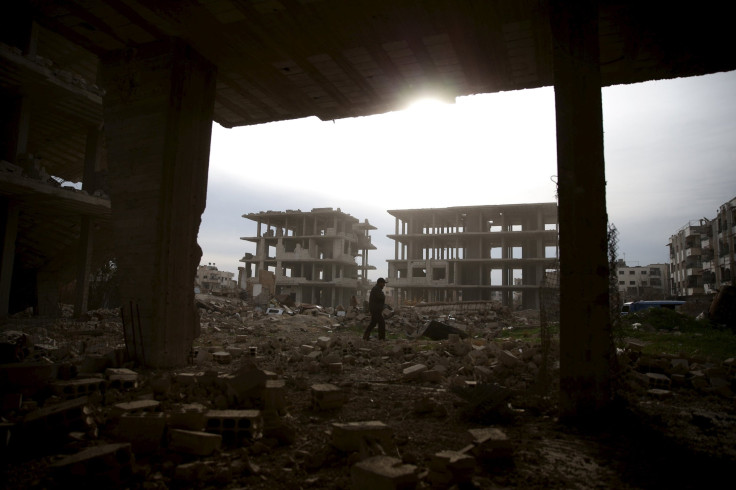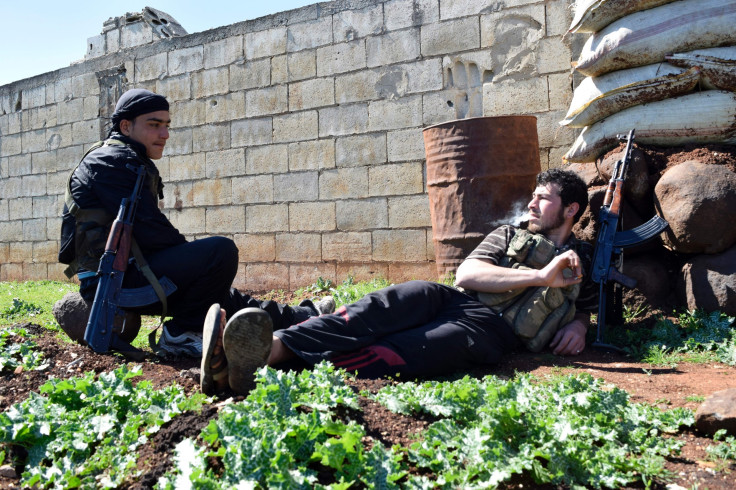Syria Humanitarian Crisis: Amid Shaky Ceasefire, Clashes And Sieges Persist

Clashes, crippling sieges and displacement continue in parts of Syria even as official cessation of hostilities pushed into its sixth day. Leaders of some of the top humanitarian agencies operating on the ground warned Thursday that international actors were failing to meet a growing and worsening humanitarian crisis. Just hours earlier, the war-torn country suffered a nationwide, hourslong blackout.
“The agreement to cease hostilities, while imperfect, represents important progress and we should seize every opportunity to make it work on all fronts, humanitarian and diplomatic... but an end to this misery is still far away," Neal Keny-Guyer, CEO of Mercy Corps, the largest NGO active within Syria, said during a National Press Club Newsmaker event in Washington, D.C., Thursday. "The scale and the magnitude of the Syrian crisis, the suffering of ordinary civilians — children and mothers — continues to shock me."
Reporting back from a recent trip to Syria, Dr. Zaher Sahloul, former president and a senior advisor to the Syrian American Medical Society, described hospitals built deep under ground to prevent being hit by airstrikes and shared the stories of doctors and aid workers killed by Russian and Syrian airstrikes. Although violence has dwindled with the cessation of hostilities, shelling and clashes have continued around Aleppo and the Turkish border.
"I don’t see political will to end the crisis in Syria. Not many people in Syria are optimistic," Sahloul said. "There are some times the regime and Russia are unfortunately trying to exploit the situation to take control… They're using the cessation of hostilities to take the upper hand."
The shaky agreement, brokered by U.S. and Russian leaders, went into effect Saturday. Although the Syrian regime and opposition fighters have launched accusations against one another for violating the agreement since then, international observers have reported a lull in fighting. The U.N. says it hopes the partial ceasefire will allow humanitarian aid to get in and facilitate work toward a long-term truce.

Ray Offenheiser, president of Oxfam America, a humanitarian relief organization active in Syria and surrounding countries, said that even beyond Syria, a crisis is only intensifying. The war in Syria has produced a massive refugee crisis, as more than half the country's residents have been displaced and millions have been pushed into neighboring countries or overseas to Europe. The U.N. last year failed to meet its goal of raising $7 billion in humanitarian aid for the cause.
"We risk losing a whole generation of Syrians to this conflict… particularly a whole generation of children," Offenheiser said. "That’s really what’s on the line."
The aid organization leaders lambasted harmful political rhetoric that they said has tainted the image of refugees. The scale of public outcry over the humanitarian crisis — considered the worst since World War II as more than 5 million people have fled the country — has paled in comparison to other conflicts or natural disasters, they said. Sahloul tied a lack in public mobilization directly to a political discourse that has included calls by U.S. governors and presidential candidates to block Syrian refugees from entering the country.
"Most of the rhetoric about Syrians being a threat is related to the elections and politicians trying to score points," Sahloul said.
The death toll in the nearly five-year conflict has reached 470,000, almost twice the number of deaths reported a year and a half ago by the U.N., according to the Syrian Center for Policy Research. Life expectancy has dropped from 70 to 56 years, the group reported.
While the present cessation of hostilities has offered some hope that warring parties might reach an agreement, no one is guaranteeing an end to the fighting between the Assad regime and opposition forces.
"The situation ... on the ground could be summarized as fragile. Success is not guaranteed, but progress has been visible," Staffan de Mistura, of the U.N. envoy to Syria, told reporters Thursday in Geneva. The next round of talks is set to begin March 9.
© Copyright IBTimes 2025. All rights reserved.






















